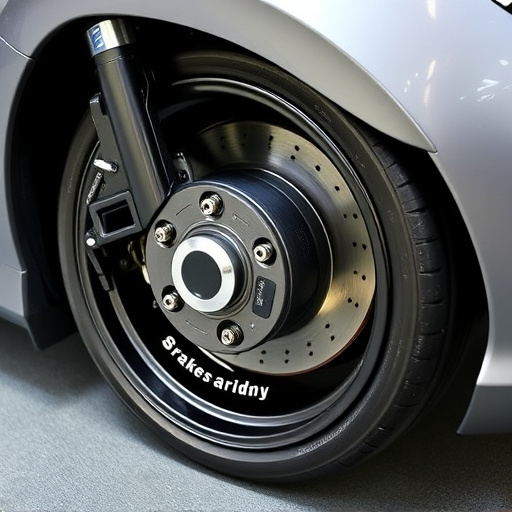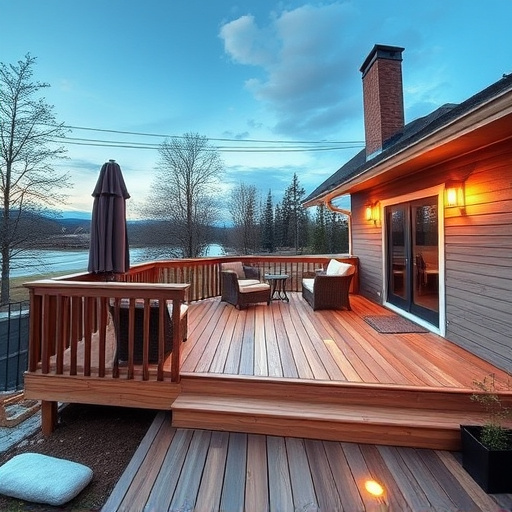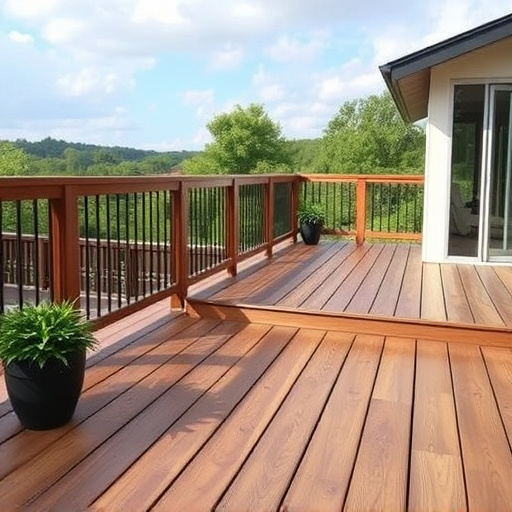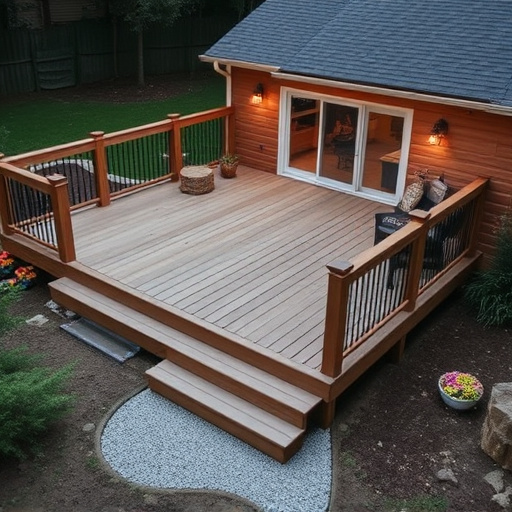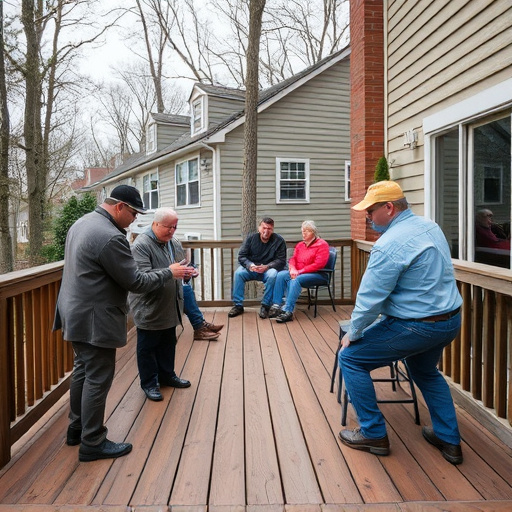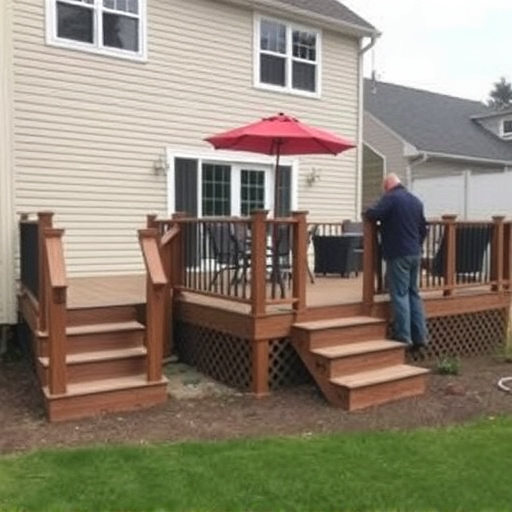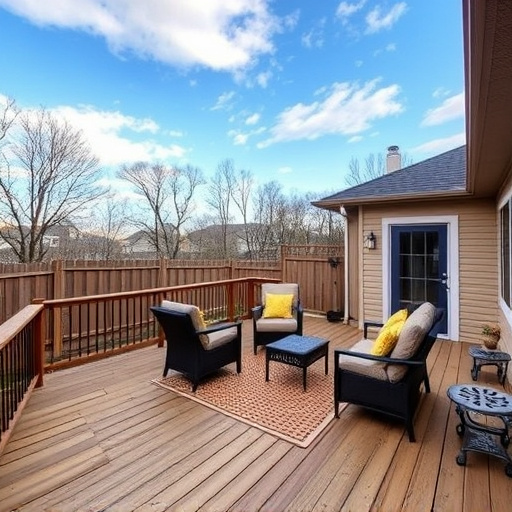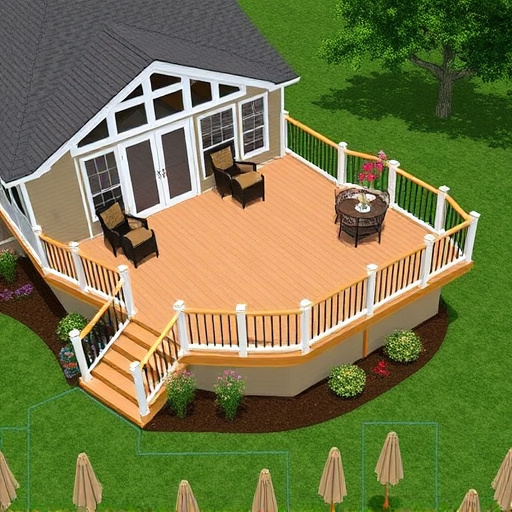Choosing between metal and wood for deck framing impacts long-term maintenance and health of outdoor spaces. Metal offers durability, low upkeep against rot, decay, and insects, while wood appeals with natural warmth, tonal variety, and aesthetic appeal despite requiring regular maintenance against weather-related damage. Homeowners prioritize metal for structural integrity, reduced maintenance needs, cost-effectiveness over time, and diverse design possibilities within budgets.
When it comes to building a deck, choosing the right framing material is crucial. This decision impacts durability, maintenance, and even aesthetic appeal. Metal and wood are two popular options for deck framing, each with its own advantages and considerations. In this article, we’ll explore the differences between metal and wood, focusing on durability, esthetic appeal, and cost to help you make an informed choice for your deck framing project.
- Metal vs Wood: Durability and Low Maintenance
- Esthetic Appeal: Style and Color Options
- Cost Considerations: Budget Friendly Choices
Metal vs Wood: Durability and Low Maintenance
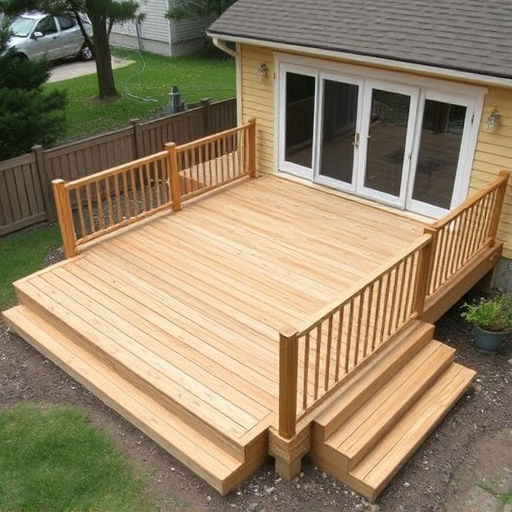
When it comes to deck framing, the choice between metal and wood is a significant decision that can impact the long-term health and maintenance of your outdoor living space. Both materials have their advantages, but in terms of durability and low maintenance, metal decks often come out on top. Metal, such as aluminum or steel, is known for its exceptional resistance to rot, decay, and insect damage, which are common issues with wood framing over time. This makes metal decks a superior option for those seeking a long-lasting structure that requires minimal upkeep.
In contrast, while wood offers aesthetic appeal and natural warmth, it demands regular maintenance to prevent siding repairs and roofing issues associated with exposure to the elements. Unlike metal, which can withstand harsh weather conditions without losing its structural integrity, wood is susceptible to warping, splitting, and rot, leading to costly repairs or even complete replacement. Therefore, for a low-maintenance deck framing solution that requires less frequent siding or roofing interventions, metal is often the preferred choice for residential properties.
Esthetic Appeal: Style and Color Options
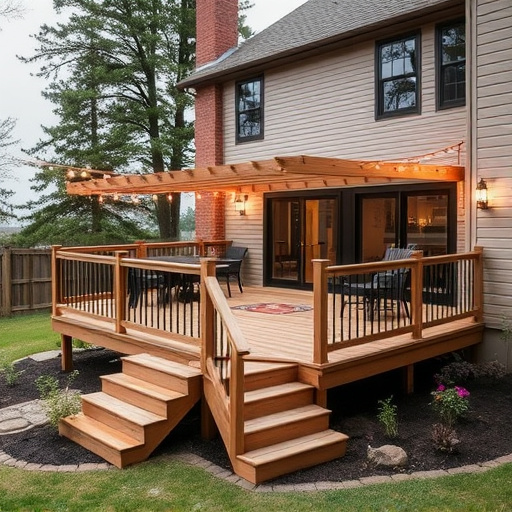
When it comes to the aesthetic appeal of your deck, metal and wood framing materials offer distinct style and color options. Wood decks exude a natural, warm look that complements outdoor living spaces, with various species like cedar or treated pine providing different tones and grain patterns. You can choose from a range of colors through staining or sealing, catering to both traditional and modern preferences. Metal decks, on the other hand, offer a sleek, industrial aesthetic, available in vibrant colors and finishes, including powder-coated options that resist fading.
This versatility in style and color allows homeowners to create outdoor spaces that reflect their unique tastes, whether it’s the timeless elegance of wood or the contemporary appeal of metal. Incorporating these choices into your deck framing decision ensures not only functional durability but also an eye-catching design element that enhances the overall curb appeal of your home, potentially adding value through residential siding and roofing services.
Cost Considerations: Budget Friendly Choices
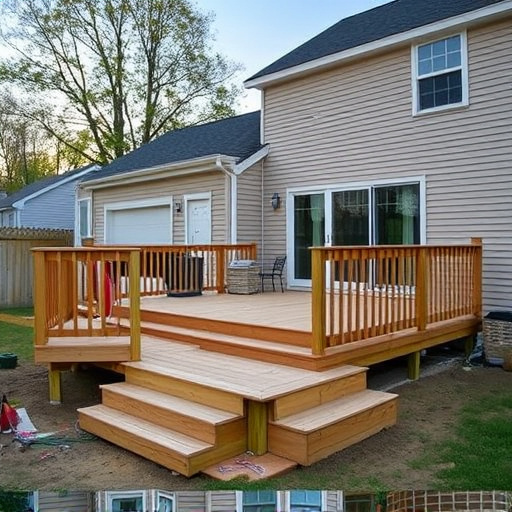
When considering deck framing materials, cost is a significant factor for many homeowners. Metal and wood each offer distinct advantages, but metal often presents a more budget-friendly option in the long run. While initial installation costs for metal decking might be higher than that of wood, metal’s durability and low maintenance requirements make it a wise investment. Over time, metal decking requires less repair and replacement, which can save you money compared to wood.
Additionally, the versatility of metal allows for creative deck designs without significantly increasing costs. Whether you’re looking to build a new deck or renovate an existing one, metal framing options cater to various styles and preferences. Incorporating metal into your deck project not only contributes to exterior home improvements but also enhances the overall aesthetics while considering commercial roofing applications, making it a practical choice for those seeking both functionality and affordability.
When deciding between metal and wood for your deck framing, consider both durability and aesthetic preferences. Metal offers superior longevity and low-maintenance care, while wood appeals with its natural beauty and diverse styling options. Cost-wise, metal can be a more budget-friendly investment in the long run, but wood provides versatile pricing depending on your chosen finish and design. Ultimately, the choice depends on your priorities—whether it’s durability, visual appeal, or cost-effectiveness for your dream deck.

